Why Was Alexander A Great Military Genius?
AncientPages.com - Alexander the Great (Alexander III of Macedon), was a military genius who changed the nature of the ancient world and he did it in little more than a decade.
Alexander was born in Pella, the ancient capital of Macedonia in July 356 BC. His parents were Philip II of Macedon and his wife Olympias.
After his father's death Alexander inherited a powerful yet very unstable kingdom but he quickly harnessed the Macedonian forces that his father’s reforms had made into the premier military power in the region. In 334 B.C., he led a grand army across the Hellespont in Asia.
With some 43,000 infantry and 5,500 cavalry, it was the most formidable military expedition ever to leave Greece.
He then led his powerful army to victories across the Persian territories of Asia Minor, Syria and Egypt and during this time, he suffered not a single defeat.
In his book "History's Greatest Military Commanders", Barry Linton writes:
"Alexander of Macedon conquered and expanded an Empire extending from Greece to faraway Indian Asia in a life cut short at the age of only 32..."
"In the key battle of Chaeronea – a decisive encounter in Phillip's campaign to defeat the Greeks and add their lands to the Macedonian Empire – the 18-year-old Alexander was given the responsibility of commanding the left wing in the line of battle. Even at this age, his military genius shone through and he was the first to break through the enemy's lines. He fought bravely and was seen as a great credit to his father.."
Alexander the Great was a leader with inspirations for his people.
"Roman historian Plutarch describes an event during the forced desert march where some of his soldiers brought Alexander their meager water supply in an upturned helmet. Alexander without hesitation refused to drink, boldly declaring that he would suffer thirst alongside his men. The surrounding soldiers were moved and responded that they would “follow such a King anywhere...”
See also:
How Did Alexander The Great Die?
Gordian Knot And How Alexander The Great Managed To Outmaneuver The Problem
His greatest victory was at the Battle of Gaugamela, in what is now northern Iraq, in 331 BC. The young king of Macedonia, leader of the Greeks, overlord of Asia Minor and pharaoh of Egypt became 'great king' of Persia at the age of 25.
Over the next eight years, in his capacity as king, commander, politician, scholar and explorer, Alexander led his army a further 11,000 miles, founding over 70 cities and creating an empire that stretched across three continents and covered around two million square miles.
The entire area from Greece in the west, north to the Danube, south into Egypt and as far to the east as the Indian Punjab, was linked together in a vast international network of trade and commerce.
This was united by a common Greek language and culture.
The fact that his army only refused to follow him once in 13 years of a reign during which there was constant fighting, indicates the loyalty he inspired.
Copyright © AncientPages.com All rights reserved. This material may not be published, broadcast, rewritten or redistributed in whole or part without the express written permission of AncientPages.com
Expand for referencesReferences:
Freeman Ph. Alexander the Great
Thomas R. Martin, Christopher W. Blackwell, Alexander the Great: The Story of an Ancient Life
More From Ancient Pages
-
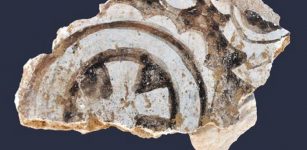 One Of Egypt’s Oldest Christian Churches Discovered By Polish Archaeologists
Archaeology | May 31, 2019
One Of Egypt’s Oldest Christian Churches Discovered By Polish Archaeologists
Archaeology | May 31, 2019 -
 Fossilized Skulls Reveal Relatives Of Today’s Rhinos Had No Horn And Died Out 5 Million Years Ago
Fossils | Nov 2, 2023
Fossilized Skulls Reveal Relatives Of Today’s Rhinos Had No Horn And Died Out 5 Million Years Ago
Fossils | Nov 2, 2023 -
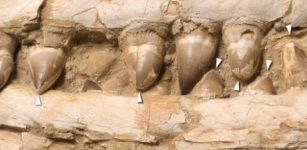 ‘Sea Monsters’ Were Real Millions Of Years Ago: New Fossils Tell About Their Rise And Fall
Featured Stories | Oct 8, 2022
‘Sea Monsters’ Were Real Millions Of Years Ago: New Fossils Tell About Their Rise And Fall
Featured Stories | Oct 8, 2022 -
 Living Descendant Of Legendary Native American Leader Sitting Bull Confirmed Using DNA From Hair
Archaeology | Oct 27, 2021
Living Descendant Of Legendary Native American Leader Sitting Bull Confirmed Using DNA From Hair
Archaeology | Oct 27, 2021 -
 10 Great Ancient Mysteries Of Africa
Civilizations | Mar 12, 2017
10 Great Ancient Mysteries Of Africa
Civilizations | Mar 12, 2017 -
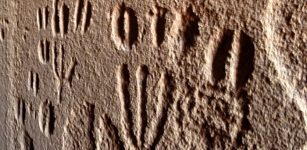 Animal Tracks And Human Footprints In Prehistoric Hunter-Gatherer Rock Art In Namibia
Archaeology | Sep 13, 2023
Animal Tracks And Human Footprints In Prehistoric Hunter-Gatherer Rock Art In Namibia
Archaeology | Sep 13, 2023 -
 Neanderthals Had Older Mothers And Younger Fathers Compared To Modern Humans
Archaeology | Apr 23, 2020
Neanderthals Had Older Mothers And Younger Fathers Compared To Modern Humans
Archaeology | Apr 23, 2020 -
 Glorious And Scary Orava Castle – Realms Of Nosferatu And A Historical Landmark Of Slovakia
Featured Stories | Jan 24, 2020
Glorious And Scary Orava Castle – Realms Of Nosferatu And A Historical Landmark Of Slovakia
Featured Stories | Jan 24, 2020 -
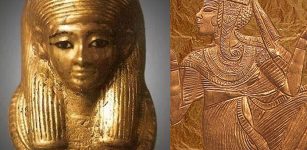 Mystery Of Dakhamunzu And The Zannanza Affair – Was Queen Ankhesenamun Hiding Her Identity?
Featured Stories | Feb 1, 2019
Mystery Of Dakhamunzu And The Zannanza Affair – Was Queen Ankhesenamun Hiding Her Identity?
Featured Stories | Feb 1, 2019 -
 Secret Underground Ancient Teotihuacan Tunnel May Solve A Long-Standing Mystery And Reveal Royal Tombs
Civilizations | Jul 8, 2016
Secret Underground Ancient Teotihuacan Tunnel May Solve A Long-Standing Mystery And Reveal Royal Tombs
Civilizations | Jul 8, 2016 -
 Leonardo da Vinci’s Paradox Cracked
Ancient Technology | Jan 19, 2023
Leonardo da Vinci’s Paradox Cracked
Ancient Technology | Jan 19, 2023 -
 On This Day In History: Adventurer Thor Heyerdahl And His Kon-Tiki Reached French Polynesia – On August 7, 1947
News | Aug 7, 2016
On This Day In History: Adventurer Thor Heyerdahl And His Kon-Tiki Reached French Polynesia – On August 7, 1947
News | Aug 7, 2016 -
 Surprising New Insights Into Use And Increased Production Of Pottery At The End Of The Last Ice Age
Archaeology | Mar 22, 2016
Surprising New Insights Into Use And Increased Production Of Pottery At The End Of The Last Ice Age
Archaeology | Mar 22, 2016 -
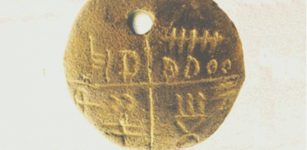 Controversial Tartaria Tablets: The First Writing System In The World?
Artifacts | Nov 13, 2014
Controversial Tartaria Tablets: The First Writing System In The World?
Artifacts | Nov 13, 2014 -
 Sayyida Al Hurra – Feared And Respected Pirate Queen Of Morocco Had No-One To Turn At The End
Featured Stories | Mar 11, 2019
Sayyida Al Hurra – Feared And Respected Pirate Queen Of Morocco Had No-One To Turn At The End
Featured Stories | Mar 11, 2019 -
 Ancient Mystery Of The Village Where All Residents Vanished Overnight
Featured Stories | Oct 19, 2021
Ancient Mystery Of The Village Where All Residents Vanished Overnight
Featured Stories | Oct 19, 2021 -
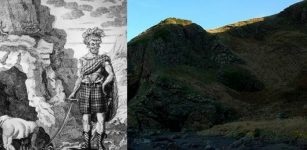 Scientists Unravel The Mystery Of The Alexander Sawney Bean Legend & Cave-Dwelling Cannibals In Scotland
Myths & Legends | Sep 24, 2015
Scientists Unravel The Mystery Of The Alexander Sawney Bean Legend & Cave-Dwelling Cannibals In Scotland
Myths & Legends | Sep 24, 2015 -
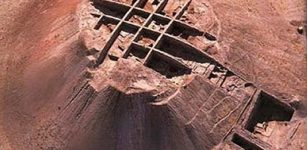 Norsuntepe – Little-Known Mysterious Prehistoric Site In Anatolia, Turkey: Why Was It Abandoned And Destroyed By Fire?
Civilizations | Mar 13, 2014
Norsuntepe – Little-Known Mysterious Prehistoric Site In Anatolia, Turkey: Why Was It Abandoned And Destroyed By Fire?
Civilizations | Mar 13, 2014 -
 Giant Balor Of The Evil Eye – Terrifying Fomorian King And Grandfather Of Celtic God Lugh
Celtic Mythology | Apr 30, 2018
Giant Balor Of The Evil Eye – Terrifying Fomorian King And Grandfather Of Celtic God Lugh
Celtic Mythology | Apr 30, 2018 -
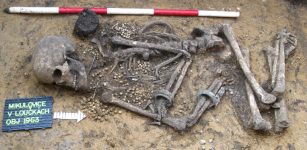 Central European Prehistory Was Highly Dynamic – New Study Shows
Archaeology | Aug 27, 2021
Central European Prehistory Was Highly Dynamic – New Study Shows
Archaeology | Aug 27, 2021


